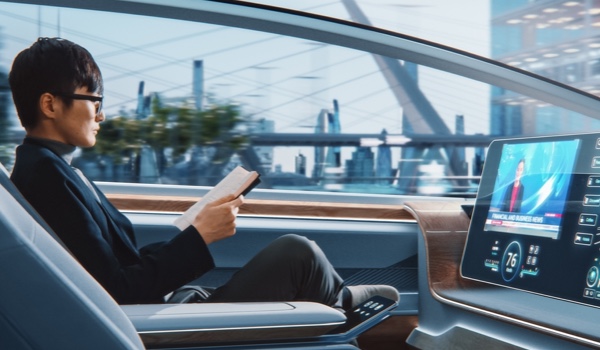


MUMBAI - On March 18, 2018, 49-year-old Elaine Herzberg was crossing the road with her bicycle in Tempe, Arizona when a self-driving autonomous vehicle (AV) Uber was testing crashed into her and caused a fatal accident.1 The cause of this incident was that the artificial intelligence (AI) system driving the car was unable to classify what was in front of it quickly enough as a ‘vehicle,’ ‘bicycle,’ or ‘other.’
Herzberg thus became the first human killed by an AV. Some claim this event slowed research and development of self-driving cars, as even Uber ended up selling its AV division. The truth, however, is that this affair merely highlighted one simple fact: it is incredibly difficult to make a fully self-driven robot taxi.
So far, United States companies have had the most success in driverless cars or AVs. This is partly because the US has among the widest roads, most structured traffic, and most rule-abiding drivers in the world. In contrast, many parts of Asia - where 60 percent of the world lives - are so overcrowded, chaotic, and unstructured that these factors are bound to overwhelm an AI system.
Take Bangalore, India’s information technology capital that boasts tons of AI startups. Its road users encounter a host of two-wheelers - cycles, mopeds, bikes - along with pedestrians and beggars with handcarts, street vendors and potholes, three-wheel rickshaws, four-wheel cars, jeeps, and a medley of other vehicles, along with 6- to 12-wheel buses and trucks and, on a bad day, heavily polluted air and foam from its polluted lakes. How can an AI possibly identify and differentiate all of these many things that come at the vehicle faster than it can detect them?
Given these factors, it should come as no surprise that an otherwise tech-savvy and entrepreneurial city such as Bangalore has not even a single startup working on autonomous vehicle technology.
Ever since 2014, Elon Musk h
The content herein is subject to copyright by The Yuan. All rights reserved. The content of the services is owned or licensed to The Yuan. Such content from The Yuan may be shared and reprinted but must clearly identify The Yuan as its original source. Content from a third-party copyright holder identified in the copyright notice contained in such third party’s content appearing in The Yuan must likewise be clearly labeled as such. Continue with Linkedin
Continue with Linkedin
 Continue with Google
Continue with Google







 1454 views
1454 views











2022-05-31
2022-05-27
2022-05-26